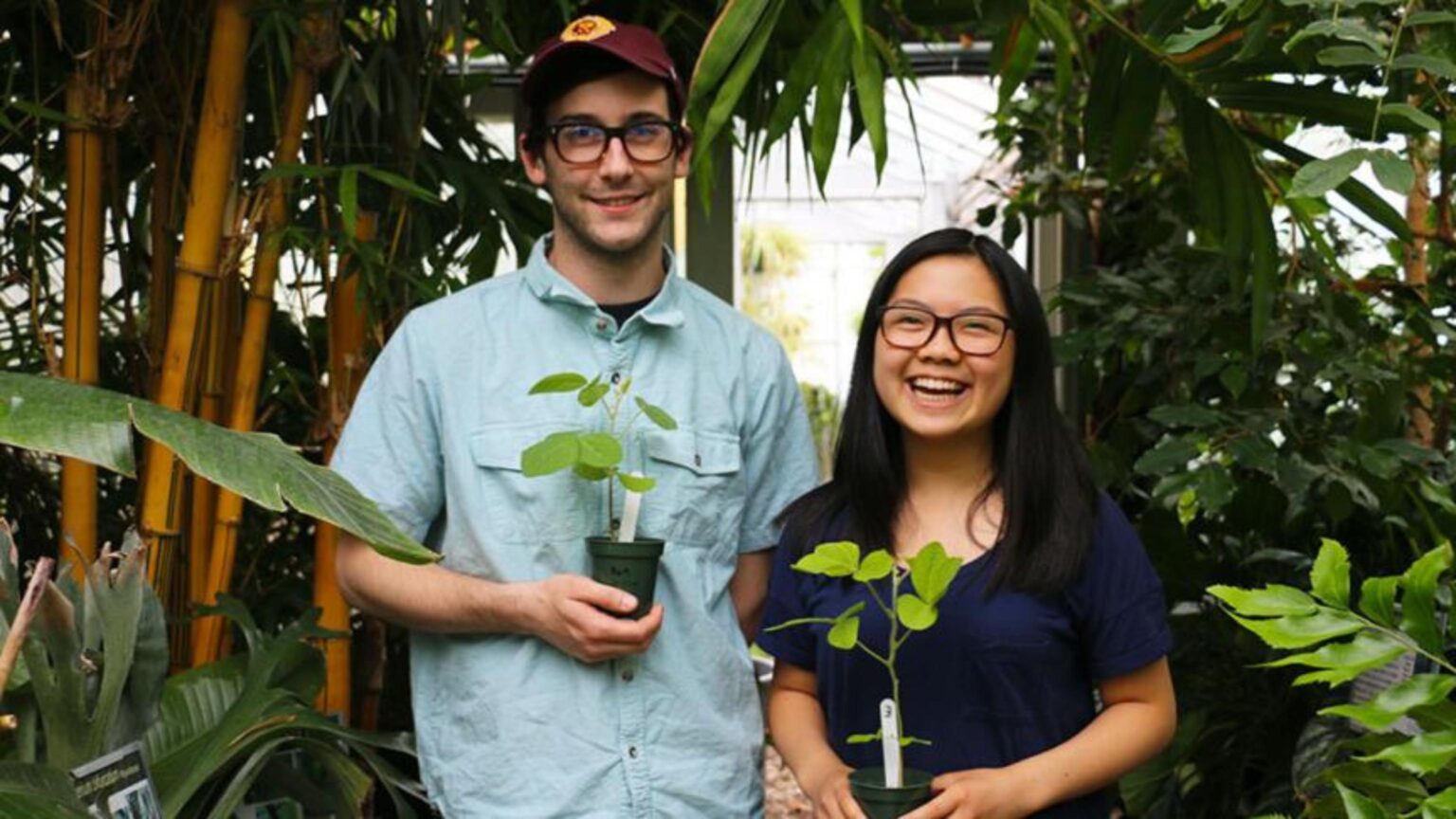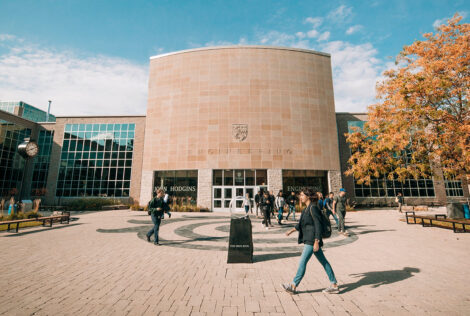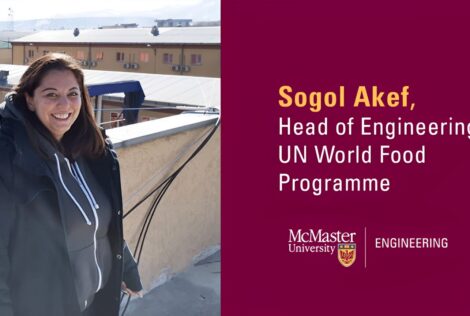

Can innovations in nanotechnology improve plant growth for crop-based farming?
That’s the question Michael Majcher, PhD candidate in Chemical Engineering and Kaylie Lau, undergraduate student in Electrical and Biomedical Engineering, are trying to answer with their collaborative research project in the McMaster Greenhouse.
As part of McMaster Engineering’s Inside the Lab series, Majcher and Lau are sharing the progress of their summer research project on Instagram.
Sponsored by Burlington-based company, EcoSynthetix Inc., one of only three companies in the world that produce starch nanoparticles commercially, Majcher and Lau are investigating the impact of starch nanoparticle hydrogels on the growth and soil moisture content of soybean plants.
The project could potentially lead to an innovation that would help control the growth of crop-based plants, particularly in regions of the world where there are unanticipated variables, such as drought and cold temperatures that can affect the growth of plants.
A hydrogel is a matrix of crosslinked polymers (e.g. starch) that promote the uptake of water. In this study, the researchers are using different forms of starch to create unique polymer networks containing absorbed water, which the plants can readily use.
“A hydrogel has water and small molecules in it to foster the growth of plants. Using the hydrogels, we want to make it easier for plants to thrive by having a more sustainable system,” said Majcher.
The duo is also loading fungicides and fertilizers into the hydrogels to act as a control and release vehicle to improve sprouting and to establish a better soil microenvironment.
“There is concern over public exposure to toxic chemicals used for conventional crops such as soybeans and corn. Starch-based hydrogels could potentially serve as safer delivery vehicles for agrochemicals,” explained Majcher.


